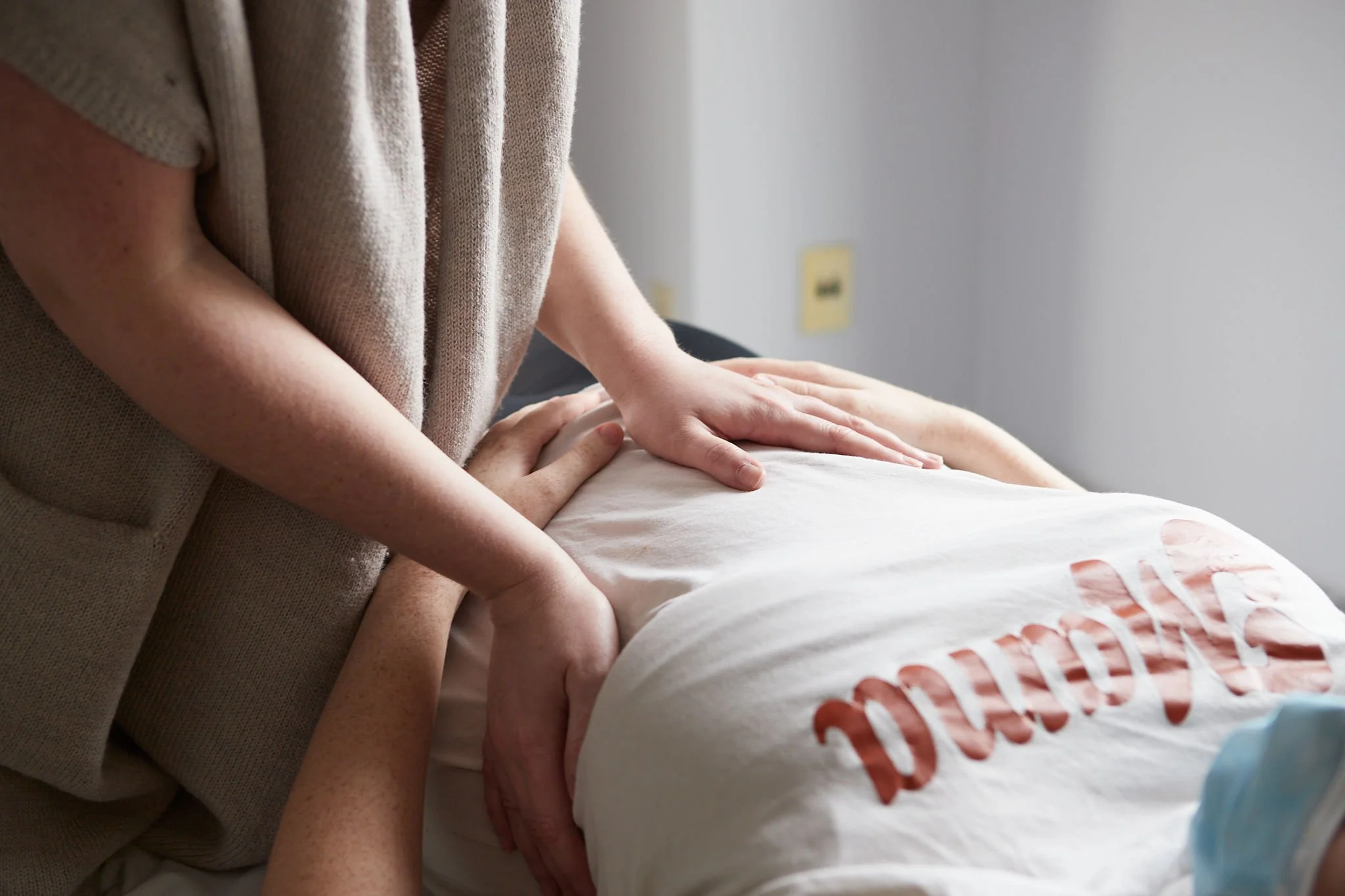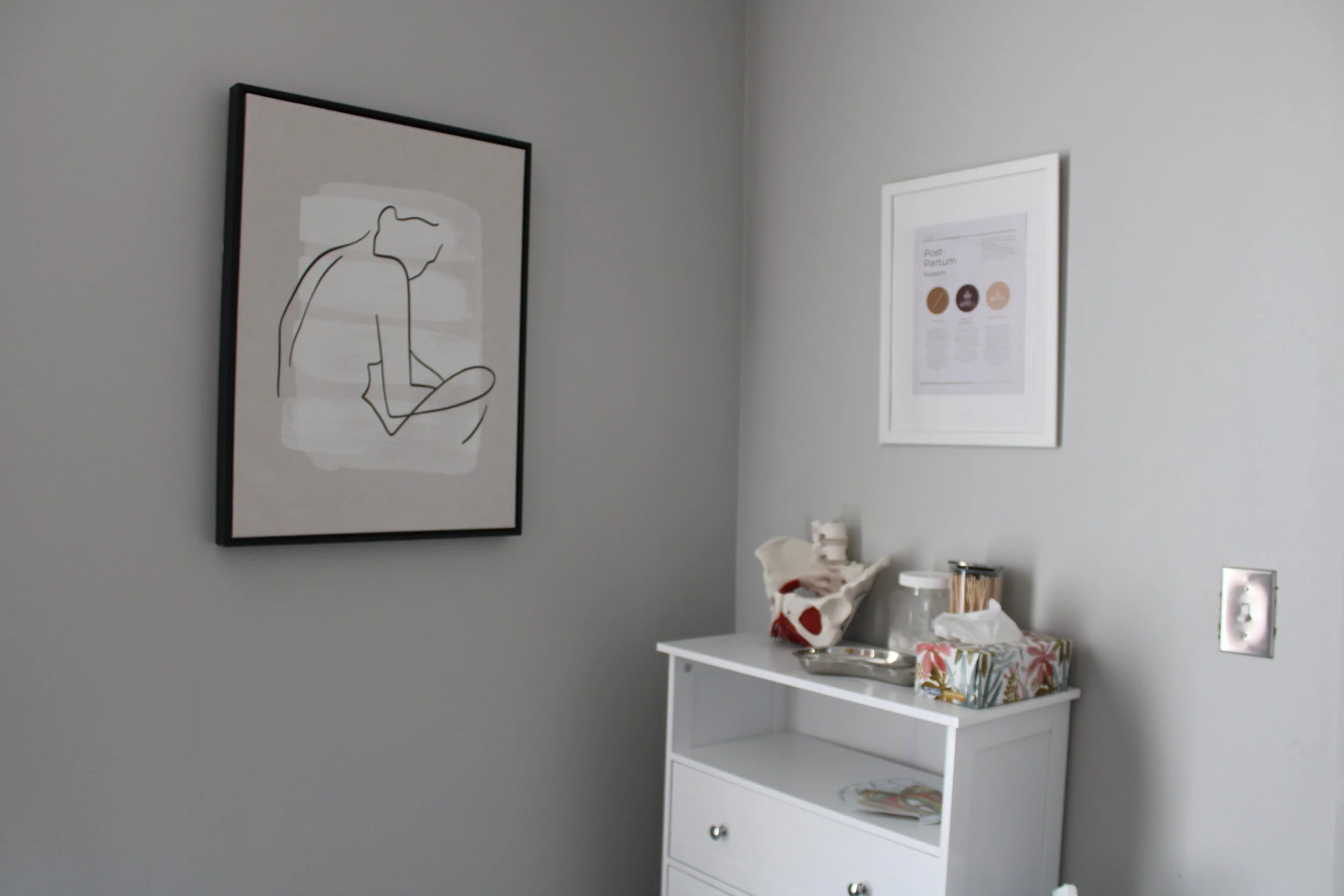PELVIC HEALTH PHYSIOTHERAPY IN OTTAWA, ONTARIO
What is Pelvic HEALTH Physiotherapy?
Pelvic health physiotherapy is a service that is focused on the pelvis and surrounding areas, including the pelvic floor - a network of muscles that support your pelvic organs and assist in bladder and bowel function. Your physiotherapist will help you understand what is driving your symptoms, teach you how to train the pelvic floor to contract and/or relax, and address issues with bladder, bowels, and/or sexual function.
There is a close connection between the pelvic floor, low back, and hips - understanding how your pelvic muscles are operating may assist you in managing pain. Internal assessment and treatment allows your physiotherapist to target specific muscles inside the pelvis, however, non-internal therapy can also be provided based on patient preference.
What can i Expect From Pelvic health Physiotherapy?
We take the time to understand all elements of your symptoms and your comfort level, to ensure that you do not feel rushed into an internal assessment until/unless you are ready.
Our pelvic health physiotherapists take a broad approach, focusing not only on the pelvic floor muscles, but also the surrounding body areas and lifestyle/behavioural interventions that may help improve your symptoms. A session takes place one-on-one with your physiotherapist. Both of our physiotherapists are trauma-informed.
Concerns That Can Be Supported By Pelvic health Physiotherapy
Prenatal Care
During pregnancy, your body goes through many changes that can impact your mobility and quality of life. Some common concerns include pregnancy-related pelvic girdle pain, urinary symptoms, bowel concerns, and hemorrhoids. During your pregnancy, staying active is generally recommended, but pain or mobility issues can make it difficult to continue physical activity. Your physiotherapist can provide exercise counselling for your pregnancy to support healthy activity for you and your baby. Most importantly, during your sessions, your physiotherapist will help you build more awareness and control of the pelvic floor during pregnancy and birth. This can be an important part of your prenatal care, as preventative pelvic floor muscle training may help prevent issues in the postpartum period, such as incontinence.
Postpartum Care
During pregnancy and childbirth, the body experiences many physical changes which can lead to weakness and/or increased tension. Postpartum pelvic floor issues are quite common and pelvic health physiotherapy can be an effective treatment option to help you improve and manage symptoms.
Chronic Pelvic Pain
Chronic pelvic pain can occur for an array of reasons, one of which may be increased tension of pelvic floor muscles. Understanding how the muscles in your pelvis and surrounding areas are operating is often an important factor in understanding and addressing your ongoing pelvic pain.
Dyspareunia (Painful Intercourse)
Dyspareunia is the medical term that refers to pain before, during, and/or after intercourse. Dyspareunia can be caused by multiple conditions including vulvodynia, vaginismus, endometriosis, uterine fibroids, IBS, and much more. Pelvic health physiotherapy is one of many approaches that can help manage this type of pain.
Vulvodynia/Vestibulodynia
Vulvodynia is a type of persistent vulvar pain with different subtypes, including vestibulodynia (pain localized to the vulvar vestibule). It can lead to pain during day-to-day activities such as sitting for long periods, sex, or using menstrual products.
Vaginismus
Vaginismus refers to an involuntary response to some or all types of vaginal penetration. This often leads to pain and discomfort during intercourse, tampon/menstrual cup insertion, and/or pelvic exams.
Dysmenorrhea
Dysmenorrhea refers to menstrual pain and can be classified as primary or secondary - primary dysmenorrhea being pain related to menstruation without an underlying medical condition and secondary dysmenorrhea being pain caused by an identifiable medical condition, such as endometriosis.
Interstitial Cystitis/Bladder Pain Syndrome
Interstitial cystitis is a chronic bladder condition that often causes pain, pressure and discomfort in the bladder and pelvic region. It’s estimated that up to 85% of individuals experiencing IC/BPS are also experiencing pelvic floor dysfunction, which can be helped by pelvic health physiotherapy.
Bladder/Bowel Dysfunction
Common bladder issues may include stress urinary incontinence, urge urinary incontinence, urinary frequency, strong urinary urge, and difficulty emptying. Bowel issues that may be helped by pelvic health physiotherapy include fecal incontinence, constipation, bowel urgency, and pain with bowel movements.
Genito-Urinary Syndrome of Menopause (GSM)
Genito-urinary syndrome of menopause is a medical term for a host of symptoms caused by hormonal changes associated with menopause. Individuals experiencing this syndrome may experience vaginal dryness, irritation, pain, and urinary symptoms.
Ready To Get Started? Book Your Appointment Today.
If you’re ready to get started with pelvic health physiotherapy in Ottawa, please book online or call us at 613-722-1674.
If you have any further questions, our team is here to provide answers.
Not sure what type of treatment you need for your condition or symptoms? Consider a free discovery session, where our team can help to identify what modalities would be best suited to your condition, illness, or symptoms.
Pelvic Health Physiotherapy FAQ
-
Pelvic health physiotherapy should be claimed under physiotherapy with your extended health benefits.
-
Absolutely - your pelvic health physiotherapist is comfortable with either an external or internal assessment/treatment while you are menstruating and can work with you depending on your comfort level at that moment.
-
There is nothing you need to do to prepare. Come as you are :)
-
After the first session your practitioner will speak to you about balance - how often is enough to get results but not too often to burn you out. It also factors in what you can afford - both time and financially - to come up with the best schedule that works for you.
-
For any of our services it is most beneficial for you to be in comfortable clothing.


